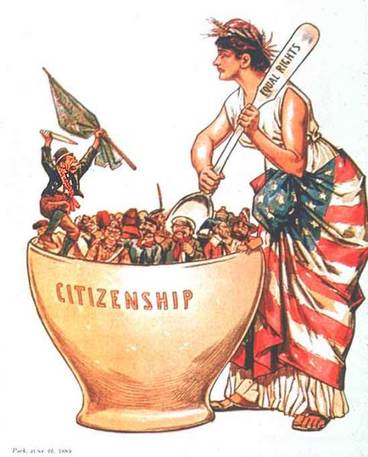


In December 1966, a group of historians, educators, sociologists, and other interested persons met at the LaGuardia Memorial House in New York City and founded the American Italian Historical Association (AIHA).
Over the past 45 years, AIHA has devoted itself to the interdisciplinary study of the culture, history, literature, sociology, demography, folklore, and politics of Italians in America. Among its 400 members are the most noted professional authorities in the field as well as enthusiastic lay persons.
Since its founding, AIHA has published over thirty volumes of the proceedings of its annual conference meetings. This year's conference will be held October 20 to 22 in Tampa, Florida, and its theme will be "Italian American Body Politics: Private Lives and Public Sphere".
Recently, i-Italy met the President of AIHA, George Guida
— a writer and associate professor of English at New York City College of Technology
— to learn more about the association, its activities and its prospects.
What is AIHA? What is the point of conducting scientific and scholarly research on Italians in America?
AIHA is an association of scholars, writers, artists and other public intellectuals concerned with studying Italian American life, and with preserving and creating Italian American culture. We're also concerned with sharing Italian American culture with those currently outside of the culture. We try to accomplish these goals by sharing, publishing and promoting our work, which reflects and is part of that culture.
Italian Americans have a rich history and a wonderful heritage that is constantly renewing itself. One important element in that constant renewal is the constant raising of people's awareness that the culture belongs to them, that it can be a great asset to their lives, wherever they are living them, and that it should never be neglected. We are in the business of helping people to appreciate the value of the knowing the history and taking part in the culture. We are less in the business of serving as an anti-defamation league or cultivating the business and governmental interests of Italian Americans. Institutions such as the National Italian American Foundation and the Sons of Italy already exist to serve these purposes. We applaud their work, and often partner with them, but our focus is first and foremost the production of knowledge and culture, which is the foundation of all social action.
The other benefit of what we do is the lasting affiliations and, especially important, personal bonds we are able to form with other members. For many of us, AIHA has become a second family.
How would you assess the state of Italian-American studies in the U.S. today?
A number of other people--some of our past presidents, for example--could give you a much better answer to this question than I can. Of course, having been part of AIHA for nearly fifteen years now, I have gotten some sense of the field. My sense is that Italian American studies is a vibrant field, but one that has not been adequately institutionalized: that is, we haven't yet been able to create enough college and university programs and other academic entities such as museums and institutes, to ensure the widespread serious and sustained exploration of Italian American culture and society that AIHA pursues. We would love, for instance, to see even half as many college Italian American studies programs as there are African American studies programs or Hispanic Studies programs. Italian Americans are a large group of Americans, and a deep knowledge of our experience can enrich not only our lives, but also the lives of all Americans.
This year's Conference has an intriguing title, "Italian American Body Politics," and an even more intriguing subtitle, "Private Lives and Public Sphere." Can you tell us something more about it?
Each year the Executive Committee of AIHA develops a theme, to provide a baseline of study, creation and discussion for the three days of the conference. The theme is never binding, so that anyone doing work in Italian American studies can present at the conference or just attend and take part in discussions. It may simply serve as--forgive the word--a stimulus. And what is more capable of stimulating or being stimulated than the body. In this case, of course, we are speaking of the body metaphorically as well as literally. I think the subtitle hints at the elements of Italian Americans' lives that we have tended not to share with one another or with the general public. That category covers a lot of ground, and has spawned what look to be fascinating and, yes, stimulating conference presentations.
This is the last annual conference of AIHA., and the first of a new association called IASA. Why is the association changing its name?
The membership of AIHA just recently approved the change to the association's new name. Sometime in 2012 we will officially become the Italian American Studies Association (IASA), in great part to acknowledge that we are part of an international academic project to study, appreciate and enrich an ethnic culture and society that is an important component of a larger culture and society. The name signals that our concerns are similar to those of other ethnic studies associations, which is important when the time comes to connect and collaborate with those associations and with other organizations supportive of our work.
[2]* George Guida is the President of the American Italian Historical Association. His latest book is The Pope Stories and Other Tales of Troubled Times (Bordighera Press, 2012). George's Web site is www.georgeguida.com [3].
Source URL: http://test.casaitaliananyu.org/magazine/focus/facts-stories/article/making-sense-italian-experience-in-america
Links
[1] http://test.casaitaliananyu.org/files/meltingpot1311361360jpg
[2] http://test.casaitaliananyu.org/www.georgeguida.com
[3] http://www.georgeguida.com